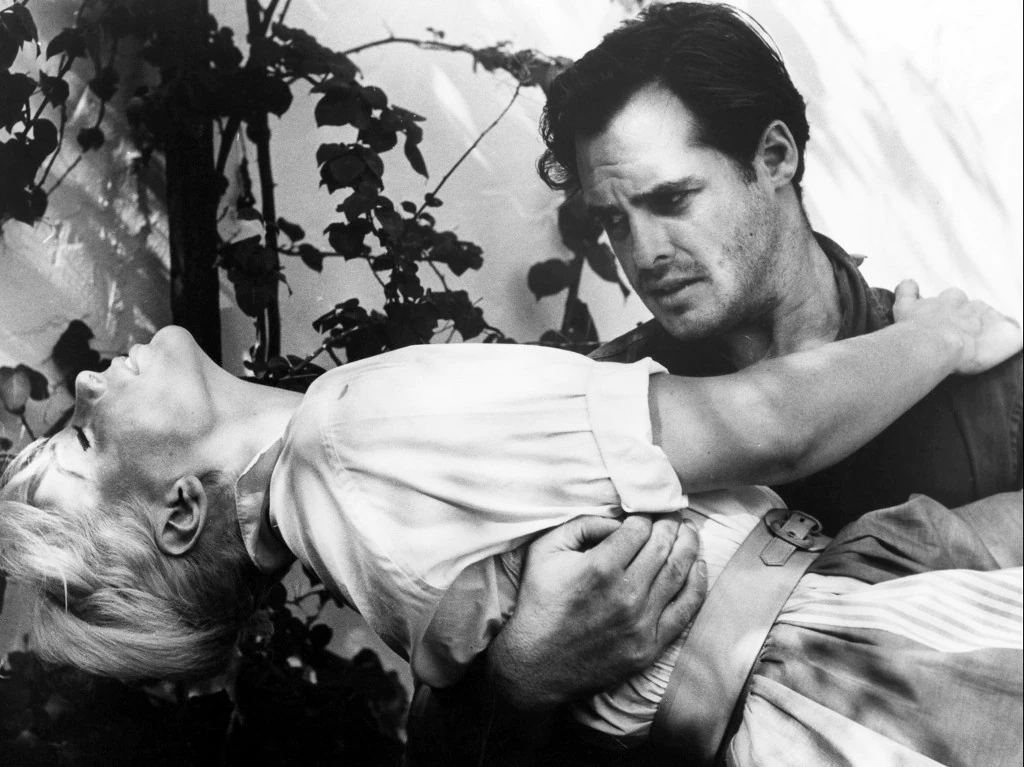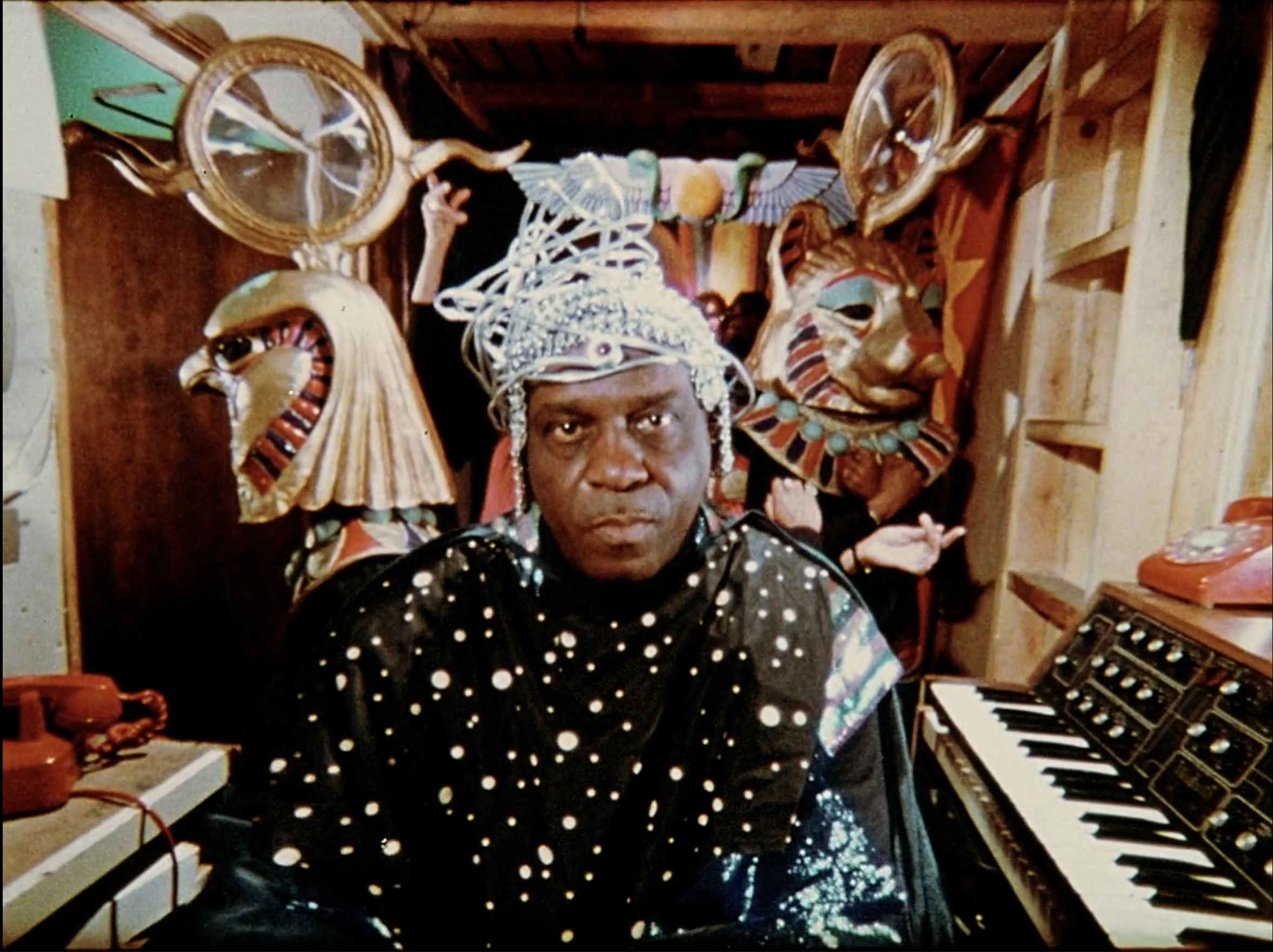
There is something disturbing about the famous footage of The Beatles on the Ed Sullivan Show. The adolescent girls in the audience screaming, crying, and even fainting as they behold their idols on stage is unsettling. Idolatry seems like a particularly apt way to characterize it. This kind of ecstatic frenzy is very similar to religious devotion. The similarity was not lost on John Lennon who would later comment that the Beatles were more popular than Jesus. This of course incited churches all over America to burn the band’s albums which only furthered the connection between religious zealotry and rock n’ roll idols. John Lennon had become the new Salem witch.
If you are not among the initiated, witnessing the pathological devotion of the believers is both confusing and frightening but imagine if you were the object of their frantic obsession. At first blush, such status might seem appealing. Certainly, there are plenty of adolescents singing at home into their hairbrushes and imagining their adoring fans but fantasies are fantasies, and the reality of stardom can be considerably different.
Both Tommy and The Wall deal with messianic fame. In The Wall, the rockstar and the adoring crowd are likened to a fascist dictator and his followers. In Tommy, it is more of a religious or new age guru and his acolytes. Either way, the main character is caught in something much bigger than he can handle. They are the head of a movement that has much more power over them than they have over it. Whether it is fascism or religion the mechanism of their power and control is capitalism. At their heart, both films are about how capitalism can turn a human into a product or a face into an image.

When Marx laid out his ideas on use value and exchange value he wasn’t thinking about rockstars but the principles elucidate what Pink Floyd and The Who were getting at. For Marx, everything has a use-value and an exchange value. An apple’s use value is our ability to eat it. We can use it for nourishment. An apple’s exchange value is somewhere around 79 cents. You can eat the apple or sell the apple. The trick comes when you try to apply this to a human being. Neither value is meant to apply to us. We don’t want to be defined by either parameter. We don’t want to have a set use, we want to be multifaceted and able to change. We don’t want an exchange value for very similar reasons. Both the characters, Tommy and Pink, are suffering a transformation that forces them into this inhuman dynamic.
Tommy and Pink are human beings who have been turned into products. They are commodities that can not only be sold but fetishized. Like laundry detergents or tampons they are sold as not only useful but as priceless liberators of human existence. Tampons are sold not just as a hygiene device but as a means of becoming a successful, vital, and beautiful woman of tomorrow. Pink and Tommy are similarly positioned not only as musicians but as a way of life, a solution to society’s ills, a savior.
As much as they are messiahs, entertainers, and products they are not themselves. Pink is first transformed by the cumulative effects of various traumas that end up locking him behind a “wall” of anxiety and isolation. This then makes him vulnerable to a second transformation where, in a search for love, acceptance, and connection he feeds on the adoration of his fans. The adoration makes him feel loved but in return, he is obligated to become their idol and their leader.
Devotion, be it religious social, personal, or political is not about following a person but about following a leader. To the leader, it can feel like love but the followers have no real connection to their leader. They’ve never even met him but they are enthralled by an image that they project onto him, or the rock group, cult, or god. They have no conception of, or concern for, the actual person. In fact, the actual person can only get in the way and spoil the illusion. Those girls in the Ed Sullivan Theater don’t want John, Paul, George, or Ringo. Those girls want a fantasy composed of album covers, magazine photos, and desperate, puberty-fueled desire.

This is what so disturbs Tommy and Pink. They both long for a genuine, sincere connection with someone. Tommy sings “See me, touch me, feel me,” but his adoring followers don’t want Tommy they want a messiah. Similarly, The fans of The Who don’t want Roger Daltrey they want a rock star. To be fair some of them genuinely admire him for his musical talent, but when Daltrey takes the stage and is met with a deafening roar of fanatical applause his musical ability is not central to what is going on. Halfway through their tour of America The Beatles stopped singing and just mouthed the words on stage because no one could hear them anyway.
Like Pink, Tommy is traumatized at an early age leaving him vulnerable. Both Pink and Tommy crave the affirmation and approval of their fans and so do not see what is happening to them. It’s not until their images become so grotesque and exaggerated that they recognize their own alienation from what their audiences see and want.

It is not a coincidence that the two ideologies that emerge from these films are religion and fascism. There is little difference between the two. The Abrahamic religions are fascist by nature. The ruler is absolute, morality is black and white, and transgressions are met with swift and brutal punishment. The love and worship of an infallible hero are what unites them and what is so distressing if you happen to be that hero.
The followers find comfort in their messiah’s perfection, the purity of his goodness, and the charisma of his presence. The followers do not want to see a real person. I’ll bet most groupies prefer that Gene Simons keep his make-up on when he is having his way with them. They don’t want to fuck Gene Simmons. Gene Simmons is a narcissistic scumbag. Those girls want to fuck a sexy rock n’ roll monster! If Simmons were capable of self-reflection he might have to face the emptiness of sex partners who have no interest in him, but instead, he reciprocates their depersonalized objectification by taking a photo of each of them and adding them to an album with all the other groupies he has screwed. This way everyone involved goes home alienated and damaged. Before he quit, Simmons had a polaroid picture of each of the 4800 women he managed to stick his dick in like an entomologist with a pin.

Ken Russell collaborated with The Who to make Tommy in 1975. Alan Parker and Gerald Scarfe collaborated with Pink Floyd to make The Wall in 1982. The late seventies was a transitional time in both the UK and The US. The optimism of the 60s had been crushed by a wave of assassinations. Heroes like Martin Luther King, Robert F Kennedy, Fred Hampton, and Malcolm X were stripped away leaving riots and chaos in their wake. A disillusioned and fearful populace turned away from altruism and empathy and toward protective self-interest. By the time Margaret Thatcher and Ronald Reagan came to power, their respective societies were less interested in groups, movements, and protests and more interested in financial security.

Both The Wall and Tommy predicted this shift. Both films feature disillusionment and a descent into despair. What seemed like a bright future turned out to be a hollow marketing campaign. Pink was just an image sold to a ravenous rabble of unthinking followers. Tommy was an exploited false messiah, leading misguided followers toward ruin. At the end of Tommy it is not just him that is disillusioned but his believers who awaken and help destroy the marketing illusions of capitalism.
When asked about the themes in The Wall Roger Waters commented,
“Audiences at those vast concerts are there for an excitement which, I think, has to do with the love of success. When a band or a person becomes an idol, it can have to do with the success that that person manifests, not the quality of work he produces. You don't become a fanatic because somebody's work is good, you become a fanatic to be touched vicariously by their glamour and fame. Stars—film stars, rock 'n' roll stars—represent, in myth anyway, the life as we'd all like to live it. They seem at the very centre of life. And that's why audiences still spend large sums of money at concerts where they are a long, long way from the stage, where they are often very uncomfortable, and where the sound is often very bad”
It is in the nature of capitalism that what is bought and sold loses its identity, loses its use, and becomes a hollow signifier of exchange. What is worse is that the hollow signifier is imbued with a false value, a sacred, fetishistic value that transforms it even further. Not only is it deprived of its use value and meaning, but it is also given a new value, a pseudo-spiritual value so that it becomes capable of saving our lives and giving us purpose. When you buy a hungry man frozen dinner, you are not buying a hunk of frozen meat and preservatives, you are buying a cheap and efficient way to make your family happy and cement your status as a successful parent.

Colonel Sanders sold Kentucky Fried Chicken to a company called Brown and Massey. Later he decided to open his own restaurant but found that Brown and Massey owned his name and face. He was legally prohibited from attaching his own name and likeness to his own restaurant. Colonel Sanders’ face was no longer a signifier of a human being. It was no longer the seat of his identity, it was an image attached to a separate meaning that he no longer had any control over. His face was now an icon. The term icon can refer to something readily recognizable to a group of people but it can also denote a sacred image. An image created to inspire awe. KFC is not out to inspire awe but they do want the colonel’s face to represent much more than a single human individual. His visage is a portal to an entire system of meaning, based on nostalgia, Americana, Gone With The Wind, and perhaps even a longing for the bygone days of white supremacy but what it is not is Colonel Sander’s face.

If you liked this article you might also like - https://filmofileshideout.com/archives/subject-position-in-bone/



